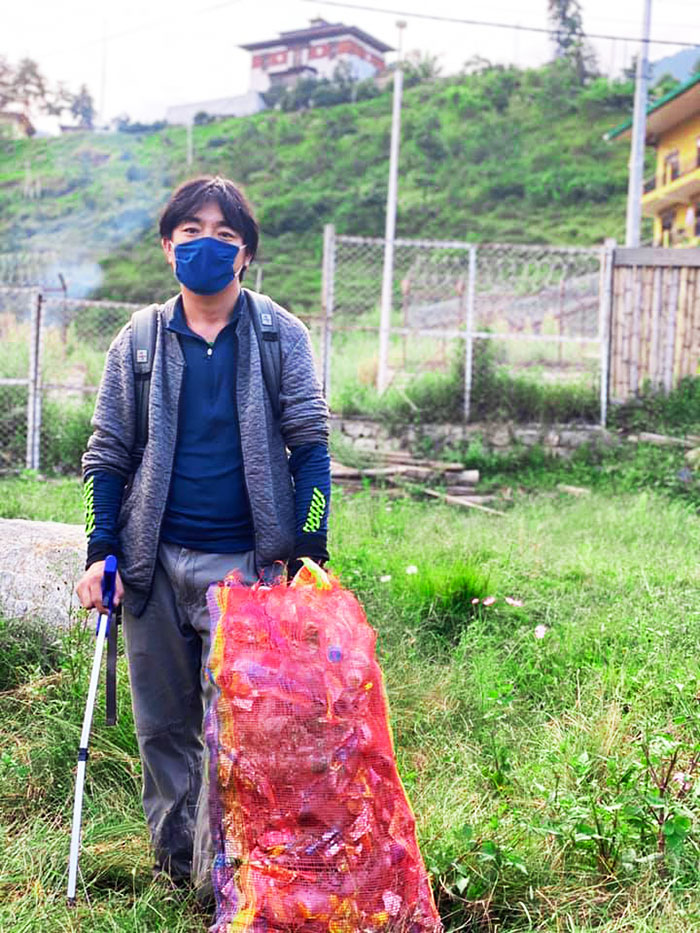Chhimi Dema
Gembo, a tour guide from Trongsa, who can often be seen with a sack and a pair of gloves, has been collecting waste since 1999.
His aim is to continue collecting waste until he can. On weekends, Gembo can be seen picking waste from around dzongs, monasteries, schools, and on hiking trails.
In the last two years, he has collected more than 15,000kg of waste—food wrappers, papers, pet bottles, beer bottles and rags.

Gembo
“When I come across a littered place, I return on Saturday or sometimes Sunday to clean,” he said. “I get satisfaction doing that. It has now become a habit.”
Gembo said that waste management or rather the lack of it was becoming a growing concern, especially in the country’s larger population centres.
It is no just the urban roadsides that are filled with waste. Even far-off trekking trails are littered with kinds and kinds of waste.
“Once I collected 37kg of waste from Rimpung Dzong in Paro. There was waste shoved in between gaps in the wall,” he said.
However, transportation of waste is a challenge for Gembo. “Initially, I took the waste to Memelhakha Landfill. Now I dispose them of at the Thromde’s waste drop-off centre.”
He first started collecting trash from Taktshang in Paro.
When he started picking trashes on his hikes, people made fun of him, he said. “People started calling me Taktshang contractor. They probably thought I was showing off or was getting paid for picking waste.”
He wasn’t deterred, however.
“Tourists say that our country is clean and beautiful. But it is really embarrassing when we come across trash,” Gembo said.
A guest once suggested that Gembo post about his waste collection on social media. He did. Tour guides were encouraged to do the same.
Were it not for Covid-19, Gembo would have gone on with his plan to collect waste from Samdrupjongkhar to Trashigang. “I will do that once travel becomes safer.”

